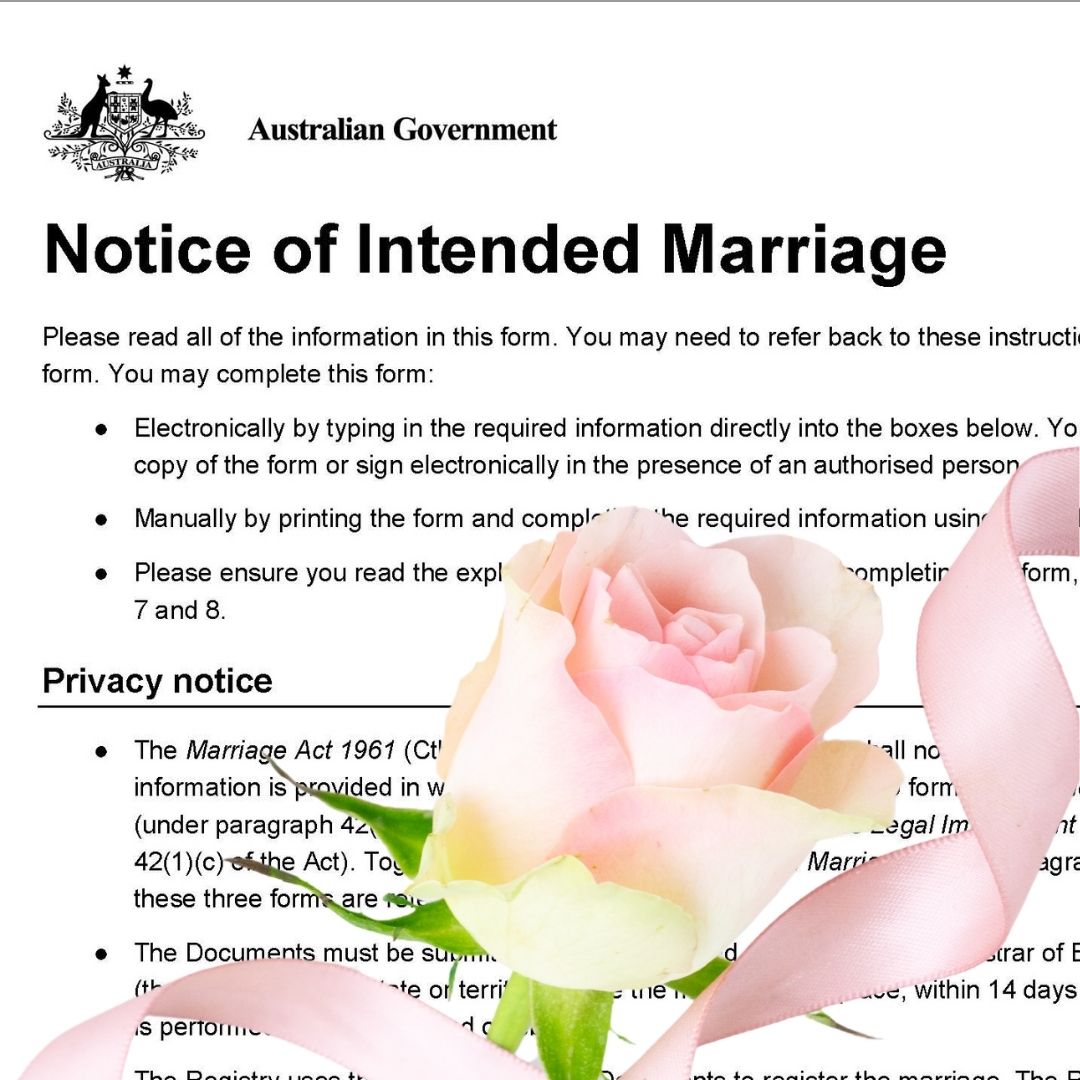Giving
Notice of your Intention to Marry
 To be
legally married in Australia you are required to give a
clear calendar
month's notice of your intended marriage.
But what does that mean, precisely? And what does it not
mean?
To be
legally married in Australia you are required to give a
clear calendar
month's notice of your intended marriage.
But what does that mean, precisely? And what does it not
mean?There is so much inaccurate information out there, but it is very simple. Here are the facts:
- If you give Notice on a certain date, the first date on which you can be legally married is the same date the following month - as long as there is one. If there isn't, you have to skip to the first day of the following month. So if you give notice on 28 February, you can marry on 28 March. But if you gave notice on 30 January, you can't marry until 1 March, because there is no 30 February.
- You have to give Notice on the official form - the Notice of Intended Marriage
- You give notice by giving a completed, signed, and witnessed form to your celebrant. (Hint: your celebrant can witness your signatures - but so can a few other people, including a JP or Police Officer)
- Giving notice is referred to as lodging the Notice - that just means giving the form to your celebrant. (Hint: you can lodge your Notice by scanning and emailing it, but you need to give the original paper form to your celebrant before you can be married)
- The Notice of Intended Marriage is valid for 18 months from the date it is lodged (not from the date it is signed, though both things often happen on the same day)
- The requirement to give one month's notice is embedded in Section 42 of the Marriage Act, 1961
The Notice Period
is NOT a Cooling-Off Period
Why is that? Because your Notice is NOT a Binding
Contract!
The only thing your Notice of Intended Marriage does
is document that on that particular day it was your
intention to marry at sometime in the future between
one calendar month and 18 calendar months from the day
lodged.
A cooling-off period is a window of time after you
have signed a binding contract during which you can
withdraw, without any penalties. Once the cooling-off
period has passed, you are legally locked in to the
contract and if you withdraw, liable to penalties.
Your Notice of Intended Marriage has NO Cooling-off
Period because:
- Signing and lodging a Notice of Intended Marriage does not obligate you to marry
- There are no penalties for changing your mind about marriage
- Nobody, not your partner, not your celebrant, not
anyone can force you to go ahead with the marriage
if you change your mind.
That simple.